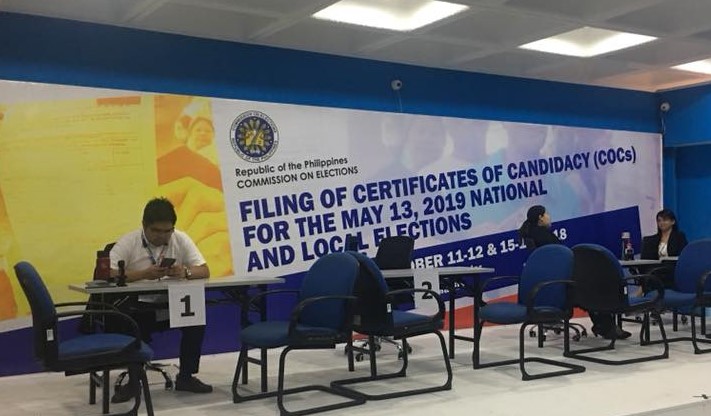The election season has just begun in the Philippines with the four-day filing of the Certificate of Candidacy at the Commission on Election (Comelec) by aspirants for senators, congress representatives, and some local seats. All the way to D Day in May, it’s expected to be another big fiesta, with motorcades, billboards and streamers, bugle and drum marches, media and street oratory, freebies, celebrity presence as candidates or star supporters.
Understandably, Filipinos are very entranced with election, the bedrock of democracy, whether national (from president and veep as in 2016), mid-term (as the coming one) and grassroots (barangay), more than any people on earth probably are. Coming from 14 years of martial law (1972-86) and the euphoria of People Power that eventually toppled the Marcos dictatorship, they can only celebrate with some manic spirit the return to freedoms and independence twice won – from Spain (1998) and the United States of America (1946). No less contributory is the people’s touted zest for celebrations, entertainment, and competitions (election, beauty pageants, singing contests).
The COC filing early this week though, caught much attention for the taunting, instead of flaunting, of democracy. There is the show of force by the established political dynasties while the political dynasty issue has persisted to spark debates even in the proposed charter change as it limits the chances of qualified citizens with little name recall and campaign kitty. The same names appear in different elective posts, from nonagenarians to millennials. Most prominent of these are kin to former and present presidents and a vice president– Marcos, Estrada, Duterte, Binay. President Duterte whose term ends in 2022 has all his matured children running – the daughter in their native province (Davao) for another term as mayor, the younger son as her vice-mayor, and older son as their province representative in the House of Representatives.
Another discordant note in the democratic process is the running of former government officials who have pending cases with the Ombudsman involving their key participation in scandalous pork barrel scams compromising government contracts and public funds, the most involved (three senators) having served preventive detentions in jail and one still unreleased. Some president’s men have also been named in the ongoing study by the International Criminal Court of the complaints filed against the president’s violation of human rights especially in his war on drugs. The Marcoses are also very determined to return to power, with the son who placed second in a tight vice-president race in 2016 still engaging in schemes to oust the lady VP, the eldest daughter making a first senatorial bid, and the dictator’s wife now in her late 80s running for provincial governor. Despite much-publicized scandals that have not escaped global watch, these officials filed their candidacies with aplomb, making an illusion of a penalty of perpetual disqualification from public service for resolved cases.
And, although there’s an election rule mandating start of campaigning in February yet for national candidates and March for locals, some candidate billboards and social media posts were already up since early this year. Disqualification and fines are no humps to them, much less delicadeza. It’s also getting dirtier and meaner by the day in the social media, with both admin and opposition candidates and supporters hurling mud, true and fake, with libel, censorship, and any other form of deterrent not taken seriously by both the election watchdog and offenders.
Does Asia’s first democratic nation, largely, still care against such mockery of the election? Is it that vulnerable now to alternative government systems like authoritarianism as deliverance and better life foreseen at the crushing of the dictatorship remain a pipe dream for the poor? Is a strongman unhesitant to use the brute force of government forces and propped up by a huge army of trolls and politicians with seasonal principles still worth a gamble despite many unfulfilled campaign promises way past his 3-6 month timeline for effecting bi changes? Is communist China, the president’s friend, being given much expansionist leeway in our shores that democracy’s ideological antithesis – communism – is sneaking in along with nearly 4 million of its citizens allowed easy entry?
Of course, defenders of democracy, those who still carry the People Power victory over dictatorship in 1986 as a badge of pride, and remain critical of the present administration’s authoritarian ways, are on owlish guard. They may have not yet beaten diehard admin supporters in surveys but their arguments have the weight of facts, logic, and fire.
The seven months are worth a keen, and unnerving, watch.










